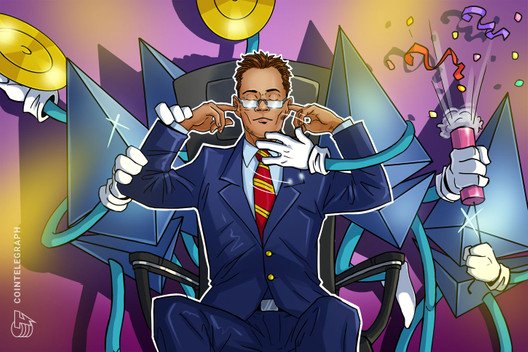Pantera Capital Founder on What He Learned From Missing Out on Ethereum
Pantera Capital Founder explains how a Bitcoin maximalist bias led to the biggest mistake of his investor career.
Dr. Steven Waterhouse, a founding partner of Pantera Capital, says that his biggest regret as a VC is not investing in the Ethereum (ETH) Initial Coin Offering (ICO), but he learned his lessons from his mistake.
Waterhouse received his doctorate from Cambridge University back in 1997. He launched several successful ventures before joining Fortress Investment Group in 2013 where he rubbed shoulders with Mike Novogratz. Initially, the idea was to start a crypto fund within Fortress. When this did not work out, he became one of the founding partners of Pantera Capital, in which Fortress invested. Currently, he serves as CEO of Orchid (OXT), a decentralized VPN service.
Bitcoin maximalism not a good adviser
Dr. Waterhouse likes to go by Seven, noting that (in his opinion) there are too many Stevens in the industry. When asked about his biggest mistake as a venture capitalist, his response was instantaneous — Ethereum. He had the opportunity to invest in its ICO, but his proximity to the Bitcoin (BTC) core team marred his judgement:
“And I wouldn’t say we were Bitcoin maximalists, but it was just kind of like, oh, it feels like maybe these guys on the Bitcoin side might figure this one out. And this kind of anarchistic guys doing the crowd sale, is not really going to work out? So we were close enough to have exposure. But we didn’t do it. That was a mistake.”
The regret is understandable, considering that the crowdsale price of ether was $1.
Lessons learned
Waterhouse did learn from his mistake, however. A couple of years later, the ICO market was booming with various ERC20 token offerings. Ethereum maximalists advised Dr. Waterhouse not to invest in these new projects:
“And then I was cautioned by my Ethereum maximalists friends that these ERC20 things weren’t going to go anywhere. You just need to use Ethereum. And I was like “I don’t know, maybe something’s in this.” And I just remember the lessons of missing on Ethereum. And so I dove into it more and concluded that I thought it was potential that it was on the right way.”
Despite chronic delays, which have become almost a feature of Ethereum development, Dr. Waterhouse still believes it to be the strongest project based on the number of developers involved:
“I still believe in decentralized smart counteract platforms, and I think that Ethereum is still a leading example of that from a development standpoint. If you have been to DevCon versus any of the other developer conferences. You’ll see in person what I mean. There are orders of magnitude more developers working on Ethereum.”
Ideological biases do not help make good investment decisions — Lesson learned.



